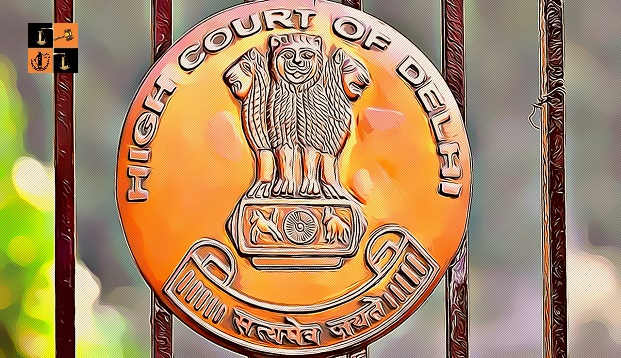The Delhi High Court dismissed a petition filed under Articles 226 and 227 of the Constitution of India seeking to assail the common order dated 05.04.2021 vide which the learned Tribunal allowed O.A No. 3133 of 2017 by setting aside the charge memo dated 19.02.2004 and initiation of departmental proceedings against the respondent vide order dated 03.07.2017. The Court observed that a charge sheet or a show cause notice, issued in the course of departmental proceedings cannot be quashed by the Court in the ordinary course. However, the same is not applicable to the present case.
Brief Facts:
While the respondent was working as a Garrison Engineer, a complaint was lodged against him before the Anti-Corruption Branch, CBI. It was alleged in the complaint that the respondent had demanded a bribe for accepting the tender. On this complaint, the respondent was sent to judicial custody on 16.04.2003 and was consequently deemed to have been suspended. Based on this complaint, the petitioners issued a charge memo dated 19.02.2004 to the respondent, to which he duly replied. However, the petitioners, instead of taking any departmental action pursuant to this charge memo, decided to await the outcome of the criminal proceedings lodged against the respondent at the behest of the CBI. The respondent was acquitted by the CBI court. The respondent made a representation for withdrawing the charge memo. However, the petitioners proposed to revive the departmental proceedings against the respondent. Being aggrieved, the respondent approached the learned Tribunal to assail the charge memo. The application was allowed, leading to the filing of the present petition by the Union of India.
Contentions of the Petitioner:
The Learned Counsel for the Petitioner submitted that the departmental proceedings against the respondent were kept in abeyance in 2004 only as per the advice of the CVC to await the outcome of the criminal proceedings, and therefore it cannot be said that the petitioners were in any manner negligent in initiating the proceedings against the respondent in a timely manner.
Contentions of the Respondent:
The Learned Counsel for the Respondent submitted that the approach adopted by the Learned Tribunal in quashing the proceedings, which were sought to be initiated more than 14 years after the date of the alleged incident, cannot be said to be improper in any manner. He submits that the petitioners were well aware of the alleged misconduct on the part of the respondent in 2003 itself but chose not to take any action at that stage.
The Court noted that the learned Tribunal took into account the fact that though the respondent was acquitted in the criminal case in March 2009, there was no justification on the part of the petitioner for not resuming the departmental proceedings till March 2017. The Tribunal has also noted that it was only after the respondent had made a representation in February 2017 for revoking the charge memo that the petitioners decided to revive the criminal proceedings against him.
The Court observed that a charge sheet or a show cause notice, issued in the course of departmental proceedings cannot be quashed by the Court in the ordinary course. However, the same is not applicable to the present case because the proceedings have been quashed on account of the inordinate delay in commencing the departmental proceedings against the respondent, whose purported misconduct was well known to the petitioners in 2003 itself.
The Decision of the Court:
The Delhi High Court, dismissing the application, held that there was no reason to interfere with the well-reasoned decision of the learned Tribunal.
Case Title: Union Of India & Ors. v M S Hashmi
Coram: Hon’ble Mrs. Justice Rekha Palli and Hon’ble Mr. Justice Rajnish Bhatnagar
Case No.: W.P.(C) 13859/2021
Advocate for the Petitioner: Mr. Vikram Jetly and Ms. Shreya Jetly
Advocate for the Respondents: Mr. Rajiv Bhalla, Sr. Adv. with Mr. Khuwaja Siddiqui, Mr. Shashank Singh, and Ms. Gauri Bedi
Read Judgment @LatestLaws.com
Picture Source :


























